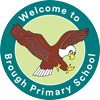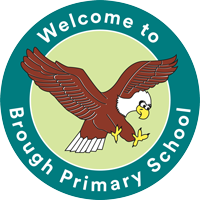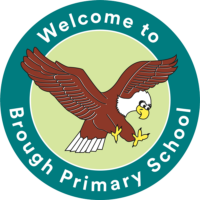Intent
Our mathematics curriculum gives the children a foundation for understanding Number, reasoning, thinking logically and problem solving independently so that they are fully prepared for the future and able to function in the wider society and workplace.
We will fulfill the requirements of the National Curriculum for mathematics whilst providing opportunities for children to develop and apply their mathematical knowledge across other areas of the curriculum and in real life – connecting their learning and encouraging the children to always strive to be the best they can.
We want children to make connections across mathematical ideas to develop fluency, mathematical reasoning and competence in solving increasingly sophisticated problems.
We want the children to use the correct mathematical vocabulary and intend to create a vocabulary rich environment with vocabulary being taught to the children to develop their confidence to explain mathematically.
Enjoyment and enthusiasm for learning will be promoted to the children through the use of practical activities, exploration, discussion with partners and groups and whole school events.
At Brough Primary School, we want all children to have a positive attitude towards their learning including mathematics, know that mathematics is essential to everyday life and be confident mathematicians who are not afraid to take risks.
We are inclusive and aim to remove any barriers to learning by: allowing the children the opportunity to work in different ways, providing inclusive and aspirational environments and learning experiences, overcoming and removing any potential barriers to learning.
We believe that every child can do maths! It is our firm belief that it is okay to make mistakes and this is how we learn – by having a go, being resilient and not giving up.
Aims
The national curriculum for mathematics aims to ensure that all pupils:
- become fluent in the fundamentals of mathematics, including through varied and frequent practice with increasingly complex problems over time
- develop conceptual understanding and the ability to recall and apply knowledge rapidly and accurately
- reason mathematically by following a line of enquiry, conjecturing relationships and generalisations, and developing an argument, justification or proof using mathematical language
- can solve problems by applying their mathematics to a variety of routine and nonroutine problems with increasing sophistication, including breaking down problems into a series of simpler steps and persevering in seeking solutions.
Implementation
In order to achieve high standards within mathematics, we implement a cumulative curriculum that is progressive from EYFS to Year 6.
Long and medium term planning
The long and medium term plans map out the experiences the children will receive in each key stage. It is written by the Maths leader in consultation with other members of the teaching staff.
They are based on the White Rose schemes of learning (version 3) , which in turn is based on the National Curriculum. Teachers use their professional judgments to personalise these schemes of learning to address the needs and requirements of individual classes whilst still ensuring that the children ‘stay together’ and work through the small steps of progressions as a whole group.
These schemes of learning are designed to support a mastery approach and have Number at their heart. A large proportion of time is spent reinforcing Number and Place Value, which are always taught in the autumn term.
The long term plan is regularly reviewed by the maths leader, in conjunction with class teachers. It is then amended to suit the needs of the children and any identified gaps in their mathematical knowledge.
The school’s calculation policies are used to ensure a consistent approach to teaching the four operations over time and has a dedicated section to the teaching of times tables as they are a key basic skill that supports curriculum progression – they are vital for quick mental maths calculations, problem solving and wide variety of vocations and situations in life requiring an adeptness in multiplication.
Wherever possible, maths is reinforced using cross-curricular links, helping to connect the children’s learning of mathematical concepts and support the transference of skills in other subjects e.g Science and Computing.
Concrete, pictorial, abstract
Maths lessons are designed with a concrete, pictorial and abstract (CPA) approach, providing the children with the scaffolding required to access the learning at all levels and build competency, in particular when they are introduced to a new concept.
Consolidation
The use of regular Flashback Four, Fluent in Five and other morning maths activities ensure repetition of key skills throughout and between years to ensure that mathematical knowledge becomes embedded.
Planned opportunities at the start of lessons to practise counting and basic number work and arithmetic skills are incorporated into the majority of lessons.
Children have access to a range of online Maths Tools including: TT Rock Stars. Maths Shed and Numbots to use at home and school to advance maths skills, and to provide multiplication practise, application and consolidation.
Maths events
Making maths enjoyable is important to us. We arrange termly whole school maths days and events with a variety of different foci including: National Number day, Enterprise activities, Maths in Art day, outdoor maths days.
Annually, the Year 6 children participate in Virgin Money’s ‘Make £5 Grow’ initiative.
Impact
At Brough Primary School, we want the vast majority of our children to leave us in Year 6 as competent, confident mathematicians who have a love for mathematics and recognise the importance of it today and in their futures lives.
Children should be able to:
- recall key number facts with speed and accuracy and use them to calculate and work out unknown facts.
- Use mathematical concepts, facts and procedures appropriately, flexibly and fluently.
- Have a sufficient depth of knowledge and understanding to reason and explain.
Children will meet or exceed the progression of skills requirements in: Number and Place Value, Addition and Subtraction, Multiplication and Division, Fractions (including Decimals and Percentages) Ratio and Proportion, Measurement, Geometry (Properties of Shapes and Position and Direction), Statistics and Algebra.
Children will recognise the importance of maths in the wider world and will be able to use their mathematical skills and knowledge confidently in a range of different contexts. They will be ready for the next stage in their mathematical journey!
We measure the impact of our curriculum by: –
- Formative assessment and feedback throughout each lesson. Teacher’s then use this assessment to inform their planning and ensure they are providing a mathematics curriculum that will allow each child to progress.
- Monitoring of taught skills across the school including the acquisition of vocabulary, using methods independently and showing resilience when tackling problems.
- Discussing and taking feedback from the children (pupil voice) by checking understanding of key concepts.
- Assessing childrens’ application of knowledge and skills they already have.
- Moderation of books to share examples of work within a particular aspect, for example; place value. (opportunity for dialogue between teachers and the subject leader).
- Learning walks to check coverage of mathematics through working walls, use of practical resources (as applicable) and vocabulary used.
- Images and videos of children’s practical learning in particular during whole school focus lessons and math’s days.
- Use of White Rose end of block assessments.
- Use of termly White Rose assessments Arithmetic and Reasoning tests.
- Statutory Assessment tests (SATs) for Year 2 and Year 6.
- Use of Insight progress and attainment tracker.


